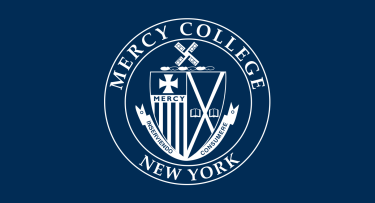Mercy Faculty Discuss COVID-19’s Impact on Nursing Students and Programs

As part of its International Speakers Series, Mercy College’s Center for Global Engagement (CGE) hosted a virtual presentation on June 23, 2020 on the topic of how nurses and first responders are addressing unprecedented challenges during the COVID-19 pandemic. The presenters were Deborah Hunt, Ph.D., R.N., nursing professor and associate dean of nursing for New Rochelle and the Bronx, and Nursing Professor Dorothy Larkin, Ph.D., R.N.
"Although every person and every health care practitioner have a role to play in this pandemic and in the health and wellness of our society and our world, nurses are truly at the forefront,” said Hunt. She explained that during the outbreak peak, families were not able to see loved ones hospitalized with COVID-19, so nurses assumed more multifaceted roles during the pandemic.
Many Mercy nursing students have been working on the frontlines of the COVID-19 pandemic. “Several of them were going from one dying person to another and not really even having the time to process that,” explained Larkin. As they brought their stories and experiences into the classroom, the nursing faculty adapted their instructional plans to create a place for them to share and process with the class. “We wove in the content that needed to be covered while really deeply attending to their emotional regulation and their capacity to integrate approaches that would help them take care of themselves,” said Larkin.
Presenters also discussed how faculty began leading sessions once or twice per week using the videoconferencing platform Zoom to give students additional opportunities to share and process. The sessions involved open discussion time with a strong focus on self-care and empowerment. "These sessions promote a sense of resiliency that can counter burnout and compassionate fatigue, which is all correlated with nurses leaving the profession," Larkin explained. The sessions have been so popular with students that the faculty plan to continue offering them, even into the next academic year.
Hunt explained that faculty made curriculum accommodations to ensure nursing students would be able to continue their studies uninterrupted. For example, clinical experiences have been temporarily replaced by virtual simulations and case studies until it is deemed safe for student nurses to return to clinics and hospitals. Also, nursing faculty often softened deadlines for assignments to support students who were dealing with other challenges such as sick family members or lack of childcare.
“Our work will continue,” Larkin asserted at the conclusion of the presentation. “I believe we can facilitate healing change for our immediate community, our nursing students, our clinical partners, and extend it out to the world. We need each other now. COVID knows no borders."
To view the presentation, please click here and use the password 3w=&zgZZ to access the recording.
